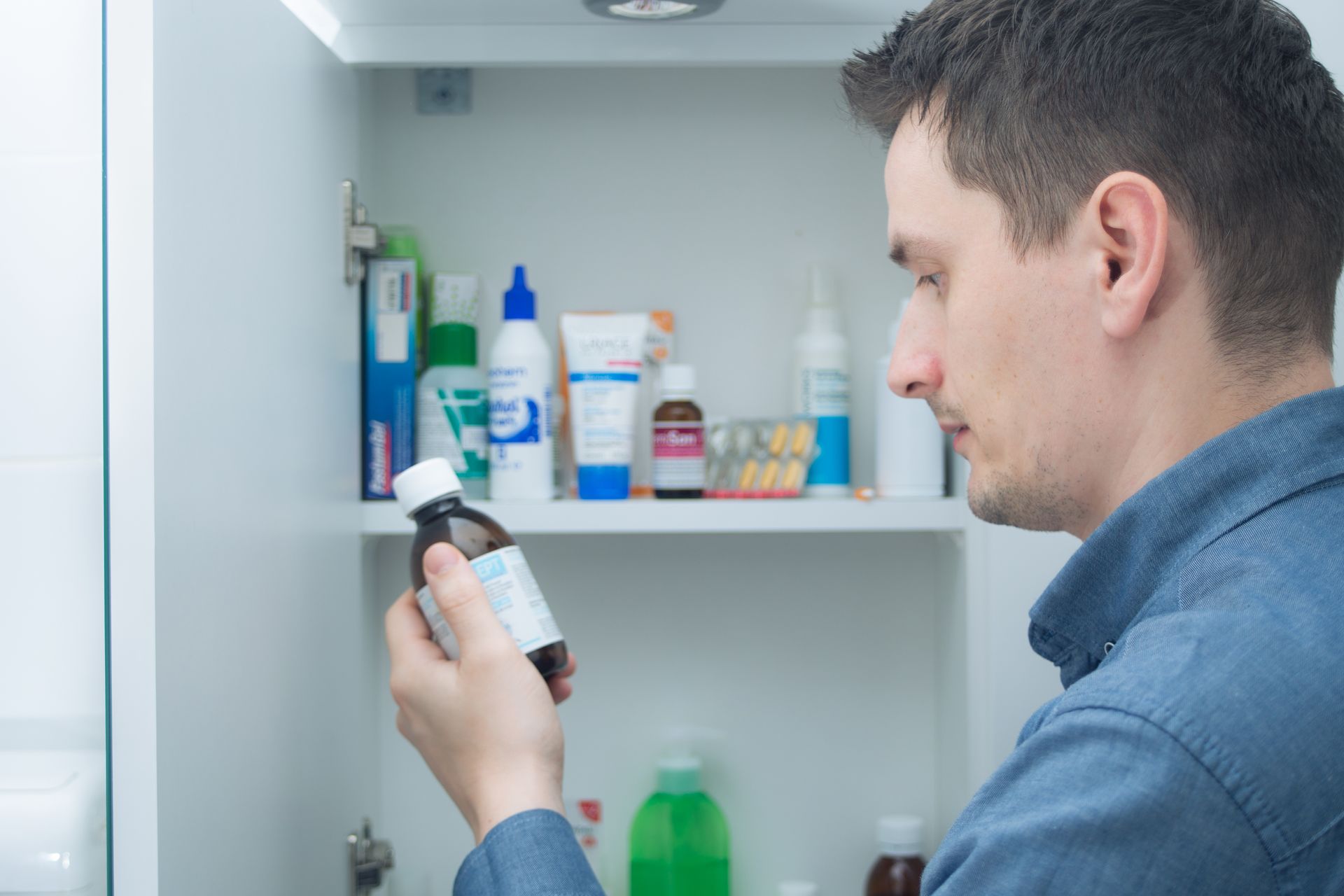Spring Cleaning Your Medicine Cabinet: What to Keep, Toss and Replace

Spring is the perfect time to open the windows, let the fresh air in, and tackle some long-overdue home organization. While cleaning out closets and scrubbing baseboards are part of the ritual, one area that often gets overlooked is the medicine cabinet.
It’s one of the most important spots in your home to keep up-to-date, organized, and safe—but also one of the most frequently neglected. An overloaded or outdated medicine cabinet can be a health risk or leave you frustrated when expired and ineffective medicine doesn’t provide relief when you need it.
Start by Removing Everything
Take everything out of the medicine cabinet or drawer and lay it out on a clean surface. You’ll want to review each item individually. This should include:
- Prescription medications
- Over-the-counter (OTC) meds
- First-aid supplies
- Vitamins and supplements
- Topical creams or ointments
- Eye drops and nasal sprays
Don’t forget to check purses, drawers, backpacks, or travel kits where extra meds may be hiding.
What to Toss
Not everything in your medicine cabinet deserves a place back on the shelf. You should throw out:
Expired Medications
Always check expiration dates. Most medications lose potency over time, and some—like antibiotics or liquids—can become unsafe.
Expired pain relievers, allergy meds, or supplements may not work when you need them most.
Unlabeled or Mismatched Bottles
If you don’t know exactly what it is or who it belongs to, toss it. It’s not worth the risk.
Old Prescriptions
If a doctor prescribed something for a temporary condition (like antibiotics or painkillers), and the course is complete, dispose of the leftovers.
Damaged or Discolored Products
Medications that have changed color, texture, or smell should be discarded—even if they’re not yet expired.
How to Safely Dispose of Medications
For OTC medications like acetaminophen or allergy pills, it’s usually safe to toss them in the trash. But disposing of controlled substances is more complicated.
- Never flush medications unless the label says it’s safe
- Use local drop-off sites or pharmacy take-back programs (like the one at St. Hope Pharmacy)
- Try drug disposal pouches, available at many pharmacies
- As a last resort: Mix with coffee grounds or cat litter, seal in a plastic bag, and throw away
What to Keep
Once you’ve removed expired or unnecessary items, restock with intention. These essentials should always be on hand:
Essentials for Everyday Health
- Pain relievers (acetaminophen, ibuprofen)
- Fever reducers (for both adults and children)
- Allergy medications (antihistamines)
- Cough medicine or throat lozenges
- Antacids and anti-diarrheal medicine
Basic First-Aid Supplies
- Adhesive bandages (various sizes)
- Antiseptic wipes or hydrogen peroxide
- Antibiotic ointment
- Tweezers, scissors, and a digital thermometer
- Ice packs (single-use or reusable)
Personalized Medications
- Ongoing prescriptions for family members
- Inhalers, EpiPens, or other emergency-use medications
- Daily vitamins and supplements (that aren’t expired)
What to Replace or Restock
After purging old and unused items, you may notice gaps. Spring is the perfect time to replace:
- Expired or nearly empty staples
- Thermometers that no longer work or are inaccurate
- Storage bins or containers that are cluttered or broken
- Add childproof safety locks if you have small children
Families should consider keeping a printed list of medications (with dosages and allergies) for each household member in the cabinet. It’s especially helpful for babysitters or emergencies.
Storage Tips for a Healthier, Safer Cabinet
Once you’ve narrowed down your inventory and cleaned the space, return everything in an organized, safe way:
- Store medications in a cool, dry place—not in steamy bathrooms
- Use labeled containers by category (e.g., “cold & flu,” “first-aid,” “kids’ meds”)
- Keep all meds out of reach of children and pets
- Set a calendar reminder to check your medicine cabinet again in 6 months or at least once a year
Spring Into Safe Health with Our Pharmacies in Houston, Sugar Land, Greenspoint, and Jersey City
At St. Hope Pharmacy, we’re here to help you keep your household safe, healthy, and well-prepared. Whether you need help identifying expired medications or managing prescriptions, our expert pharmacists are here for you.
Visit one of our St. Hope Pharmacy locations today, or contact us through our website for trusted advice and personalized support.


